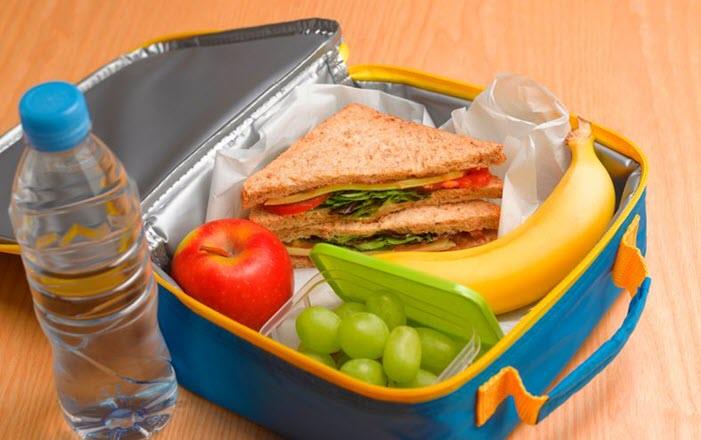Parents Urged To Prioritise Nutritious Lunchboxes For Children's Health
Doha, Qatar: With the start of the new school year after the long summer break, the importance of daily habits practiced by students during their school day comes to the forefront-chief among them is having breakfast at school. This meal is not just food; it is a key factor in boosting energy and activity, while helping to prevent lethargy, obesity, and diabetes.
In this regard, dietician Hissa Al Naemi, Manager of Dietetics at the Primary Health Care Corporation (PHCC), highlighted a set of important health standards that parents should follow when preparing their children's school lunchboxes, to ensure better health and higher academic performance. She stressed that the lunchbox is not merely a daily meal, but rather an investment in the health of the next generation. By committing to healthy standards in preparing school meals, parents help raise healthier students who can achieve better academically, while avoiding health risks that may affect their educational journey.
A healthy, balanced meal
Al Naemi pointed out that the type of foods students eat plays a direct role in preventing obesity and diabetes-especially type 2 diabetes, which is closely linked to excess weight. She emphasized the importance of ensuring that meals are balanced and nutritious, providing the energy needed for concentration and learning.
She explained that an ideal meal should include a variety of food groups such as:
- Fresh vegetables and fruits
- Whole grains and legumes
- Dairy products or their alternatives
- Healthy proteins such as eggs or cheese
- Choosing the right lunchbox
According to Al Naemi, the school lunchbox is not just a container for food, but a tool to protect the student's health. She stressed the importance of choosing a suitable box that keeps food at the right temperature to avoid spoilage. She also advised preparing healthy options such as fresh baked goods and whole fruits (like apples or bananas), in addition to long-life milk or juices, while ensuring proper storage.
She warned that neglecting safe storage practices may lead to food poisoning, especially with cooked foods that require special care in handling.
Avoiding unhealthy foods
Regarding the most common unhealthy eating habits, Al Naemi explained that some lunchboxes include sweets and pastries high in fats and sugars. These foods are calorie-dense but nutritionally poor, ultimately leading to weight gain.
She stressed the need to avoid including chocolate, chips, sweetened juices, and soft drinks in school lunchboxes, as they negatively affect children's health and activity levels.
Water, vegetables, and fruits
Al Naemi also highlighted the importance of ensuring that water is included daily in the school lunchbox. Water is essential for vital body functions and prevents dehydration, which can impair concentration and comprehension.
She further recommended focusing on fresh and dried fruits, vegetables, and nuts, as they provide fibers and natural sugars that boost brain function and improve academic performance. She suggested cutting fruits and vegetables into smaller pieces to make them easier to eat, especially for younger children, and reminded parents to encourage children not to share food with others to maintain hygiene and safety.

Legal Disclaimer:
MENAFN provides the
information “as is” without warranty of any kind. We do not accept
any responsibility or liability for the accuracy, content, images,
videos, licenses, completeness, legality, or reliability of the information
contained in this article. If you have any complaints or copyright
issues related to this article, kindly contact the provider above.
Most popular stories
Market Research

- Japan Well Intervention Market Size To Reach USD 776.0 Million By 2033 CAGR Of 4.50%
- Vietnam Artificial Intelligence Market Size, Share, Growth, Demand And Report 2025-2033
- Industrial Hose Market Size, Trends, Growth Factors, Latest Insights And Forecast 2025-2033
- Nutritional Bar Market Size To Expand At A CAGR Of 3.5% During 2025-2033
- What Does The Europe Cryptocurrency Market Report Reveal For 2025?
- North America Perms And Relaxants Market Size, Share And Growth Report 2025-2033




















Comments
No comment